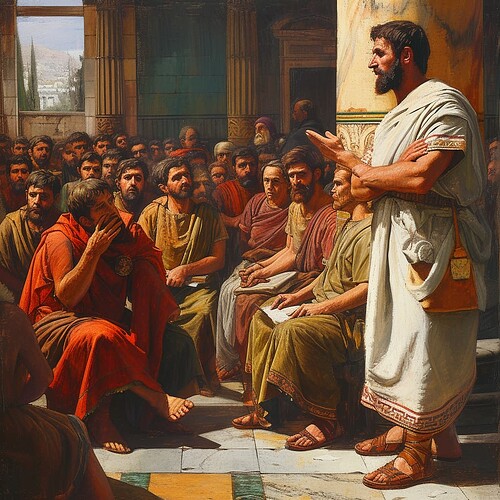 February 22: 1 Corinthians 4, 5 - Stewards of God’s Mysteries & Unequal Yokes
February 22: 1 Corinthians 4, 5 - Stewards of God’s Mysteries & Unequal Yokes
In our Bible journey today, we dive deep into 1 Corinthians 4 and 5 where Paul addresses the subjects of loyalty, judgment, wisdom, excommunication, and Christian purity.
 Laboring like the Apostles
Laboring like the Apostles
In 1 Corinthians 4, Paul emphasizes his and Apollos’ roles as servants of Christ, entrusted with God’s mysteries. He acknowledges their humanity, yet with sheer humility insists that they are nothing more than farmers tending the Lord’s field.
![]() “Let us be regarded as servants of Christ and stewards of the mysteries of God.” - 1 Corinthians 4:1
“Let us be regarded as servants of Christ and stewards of the mysteries of God.” - 1 Corinthians 4:1
 Confronting Immorality in the Church
Confronting Immorality in the Church
In 1 Corinthians 5, Paul fearlessly broaches the issue of a member living in outright sexual immorality. With a somber tone, he commands the church to excommunicate the guilty party to prevent the contamination of the whole community.
![]() “Purge the evil person from among you.” - 1 Corinthians 5:13
“Purge the evil person from among you.” - 1 Corinthians 5:13
 Key Themes and Reflections
Key Themes and Reflections
These two chapters bring to light two main themes:
- We’re called to be faithful stewards of God’s wisdom. This calls for humility, submission, and dedication, not self-glorification.
- Immorality within the church must be dealt with decisively. It’s a stark reminder of the seriousness of sin and the importance of maintaining a purified community.
 Today’s Application
Today’s Application
As believers, we are called to embody and reflect Christ’s values on earth. Stewarding God’s mysteries means spreading the Gospel and maintaining integrity. Furthermore, the issue of excommunication urges us to examine our ways on a personal level and keep our spiritual communities accountable.
 Hidden Gem
Hidden Gem
Did you know that ‘leaven’ in 1 Corinthians 5:6-7 is a consistent biblical symbol used to depict pervading sin or corruption? This reveals that just like a little yeast affects the whole dough, a single act of sin can impact the whole church.
 Reflective Q&A:
Reflective Q&A:
![]() How do I steward the mysteries of God in my day-to-day life?
How do I steward the mysteries of God in my day-to-day life?
A: This could be through sharing the Gospel with others, practicing love and service, or making choices that reflect God’s teachings.
![]() How should we handle sin within our spiritual communities?
How should we handle sin within our spiritual communities?
A: We need to tackle it with love, truth, directness for reconciliation, and restoration without endorsing or tolerating such behaviors.
![]() What practical steps can we take to keep our communities pure, as Paul suggested?
What practical steps can we take to keep our communities pure, as Paul suggested?
A: Uphold God’s laws, address sin directly, promote confession, repentance, and forgiveness, and most importantly, pray fervently.
![]() Join the Discussion:
Join the Discussion:
How can we implement Paul’s teachings today? Let’s discuss it in our community.
![]() See You Tomorrow in 1 Corinthians 6:
See You Tomorrow in 1 Corinthians 6:
We’ll explore the powerful lessons from Paul about lawsuits amongst believers and the understanding that our bodies are temples of the Holy Spirit.
